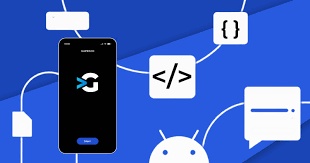Introduction:
In the dynamic landscape of Android app development, choosing the right development framework is a critical decision that can significantly impact the success of your project. With various options available, such as Kotlin, Java, and Flutter, it's essential to weigh the pros and cons to align the framework with your specific project requirements. In this article, we will compare these popular Android app development frameworks and provide guidance on selecting the most suitable one for your needs.
1. Kotlin: The Modern Alternative
Kotlin has gained immense popularity in recent years as a modern and concise programming language fully interoperable with Java. It offers enhanced readability, null safety, and concise syntax, making it a favorite among developers. Kotlin's seamless integration with existing Java codebases and its official support from Google positions it as a robust choice for Android development.
- Pros:
- Concise syntax and reduced boilerplate code.
- Improved null safety.
- Seamless interoperability with Java.
- Cons:
- Smaller community compared to Java.
- Learning curve for developers unfamiliar with functional programming.
Opt for Kotlin development if you prioritize modern language features, concise code, and seamless integration with existing Java projects.
2. Java: The Time-Tested Standard
Java has been the traditional language for Android app development and continues to be a reliable choice. It boasts a vast developer community, mature ecosystem, and extensive documentation. While it may not have the brevity of Kotlin, Java remains a solid option for building robust and scalable Android applications.
- Pros:
- Large and experienced developer community.
- Extensive libraries and frameworks.
- Proven track record for stability.
- Cons:
- Verbosity of code compared to Kotlin.
- Slower adoption of new language features.
Choose Java if you value a mature ecosystem, extensive community support, and a stable, time-tested language.
3. Flutter: The Cross-Platform Champion
Flutter, developed by Google, stands out as a cross-platform framework that allows developers to create applications for both Android and iOS from a single codebase. Using Dart as its programming language, Flutter provides a rich set of customizable widgets and a hot-reload feature for faster development cycles.
- Pros:
- Single codebase for Android and iOS.
- Expressive UI through customizable widgets.
- Hot reload for quicker development.
- Cons:
- Larger app sizes compared to native solutions.
- May not have access to certain native features.
Opt for Flutter if you develop a cross-platform solution, rapid development cycles, and a visually rich user interface.
Conclusion:
Ultimately, the choice of an Android app development framework depends on your project's specific requirements, team expertise, and long-term goals. While Kotlin, Java, and Flutter each have their strengths, consider factors such as language features, community support, and the nature of your application before making a decision. Whichever framework you choose, staying informed about the latest updates and best practices will contribute to the success of your Android app development endeavors.


No comments yet